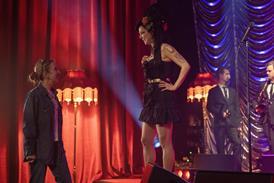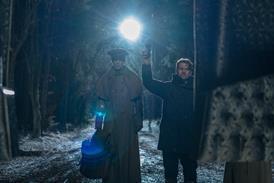Festival directors know only too well that luck as well as judgement determines the strength or weakness of their competition programmes.
The state of world cinema may vary enormously year by year - Cannes head Gilles Jacob has even admitted in the past that his programme has merely been the best he could find in a poor year'
But Dieter Kosslick, whose second outing as head of the Berlinale opens on Feb 6, is entitled, if not to crow, at least to view his line-up with some pride. Last year, he asked not to be judged as the successor to the long-lasting Moritz de Hadeln, now head of Venice. This year, despite financial restrictions as pressing in Berlin as almost anywhere else in Germany, he expects his reputation to be on the line.
True, there may be criticism. There will be too many American movies for some people's taste - some of which hardly need the succour of film festival support and will undoubtedly block many of the screens that might otherwise be tempted to show European movies. Two of them, Chicago and Gangs Of New York, open and close the programme out of competition. But Berlin, with much less sponsorship, needs every star it can get hold of more than ever this year, and every film guaranteed to pack its theatres.
And is the state of the German cinema healthy enough to sustain three films in competition' Perhaps. Kosslick would doubtless say that it is the duty of the leading German festival to encourage the German industry to believe that it is, at least partially, there to support it. It hasn't always been so.
Kosslick is fully entitled to claim that his line-up includes genuine discoveries alongside its more starry offerings. Some are by no means obvious box-office draws - even on the arthouse circuit - like Moussa Sene Absa's Madame Brouette from Senegal and Michael Meredith's first feature Three Days Of Rain, which transports Chekhov to Cleveland, USA. He can also say with some justice that a good Hollywood film like Adaptation or a German film of the controversial quality of Wolfgang Becker's Good Bye Lenin! has just as much right to be in the competition section as Chicago or Gangs.
His mix looks intriguing, even for the most cynical of critics, with Festival favourites like Steven Soderbergh (Solaris), Spike Lee (25th Hour), Claude Chabrol (The Flower Of Evil) and Zhang Yimou (Hero) vying with lesser known names for the favour of the international jury.
The Forum and Panorama sections too look reasonably strong, so much so in fact that some critics will doubtless sing the old song about films in those sections which should have been in competition.
Altogether, it's a huge programme, larger than that of Cannes or Venice, Berlin's two main competitors in Europe. If Kosslick triumphs, it will be despite a number of difficulties no one anticipated before he took over. If he doesn't, there's always next year.
What he deserves most is commendation for his inaugural Berlin Talent Campus. Festivals shouldn't be, we've been recently told, purely about showing and, hopefully, selling films. There's a need to do more than that, and Kosslick's institution of his five-day Campus could be an effective answer to those who think film festivals are in danger of becoming a world of their own, unrelated to the real business of attracting a wider public to the cinema.
2,000 young film-makers from dozens of countries applied to attend the five-day series of events, which include showing their own films, meeting with experienced professionals and tasting the wares of the festival itself. 500 were selected and aid sought from organisations all over the world to bring them to Berlin and house them. It is a bold and possibly risky move which deserves, just as much as the films themselves, to underline the fact that the Berlinale is progressing and not just standing still.


















No comments yet